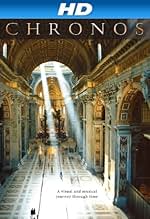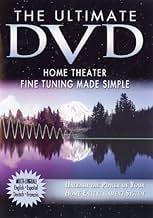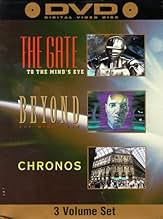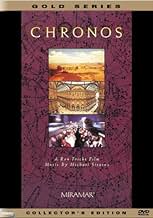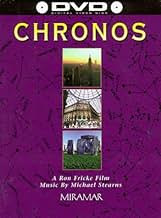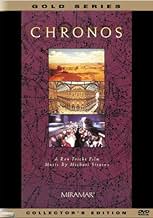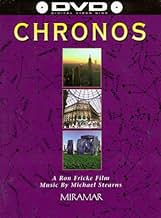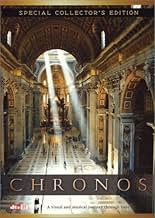Carefully picked scenes of nature and civilization are viewed at high speed using time-lapse cinematography in an effort to demonstrate the history of various regions.Carefully picked scenes of nature and civilization are viewed at high speed using time-lapse cinematography in an effort to demonstrate the history of various regions.Carefully picked scenes of nature and civilization are viewed at high speed using time-lapse cinematography in an effort to demonstrate the history of various regions.
- Director
- Writers
7.74K
1
2
3
4
5
6
7
8
9
10
Featured reviews
Baraka "lite" (shorter, perhaps a good intro to this sort of film)
In Greek mythology, Chronos is said to be the personification of time. Taking that into consideration, you might assume that this would be the longest of the films that Ron Fricke was involved with but actually the opposite is true. Chronos comes in at just under 45 minutes making it a short but sweet trip around some of the world's most beautiful man-made and geological structures.
For those looking for a longer trip as well as more to think about when the film is over, I highly recommend Powaqqatsi at 99 mins, Baraka at 96 mins, and Koyaanisqatsi at 87 mins - but you should probably skip Naqoyqatsi at 89 mins because its the weakest of the Qatsi trilogy. Whereas Naqoyqatsi's seizure inducing mechanical/digital messages drench the experience, Chronos is the exact opposite.
Chronos is sort of a Baraka "lite". This does not have the music of Philip Glass or the socio-political messages, but the beauty on display should make up for it. Additionally Fricke experiments with different exposures and filters (not seen in the other films) to create some striking effects. If you get the chance to see it, definitely take this one for a spin.
Fricke has a new film coming out soon (should be sometime this year) called Samsara which is a sequel to Baraka, and if that doesn't fill the gap you can check out Anima Mundi (by Reggio about animals), Microcosmos (about insects) and Atlantis (by Luc Besson) which is like a scuba dive.
For those looking for a longer trip as well as more to think about when the film is over, I highly recommend Powaqqatsi at 99 mins, Baraka at 96 mins, and Koyaanisqatsi at 87 mins - but you should probably skip Naqoyqatsi at 89 mins because its the weakest of the Qatsi trilogy. Whereas Naqoyqatsi's seizure inducing mechanical/digital messages drench the experience, Chronos is the exact opposite.
Chronos is sort of a Baraka "lite". This does not have the music of Philip Glass or the socio-political messages, but the beauty on display should make up for it. Additionally Fricke experiments with different exposures and filters (not seen in the other films) to create some striking effects. If you get the chance to see it, definitely take this one for a spin.
Fricke has a new film coming out soon (should be sometime this year) called Samsara which is a sequel to Baraka, and if that doesn't fill the gap you can check out Anima Mundi (by Reggio about animals), Microcosmos (about insects) and Atlantis (by Luc Besson) which is like a scuba dive.
10SkyCAM
One of the most aesthetic movies ever
I was fortunate to see the movie in HD on cable recently. The movie is a bit like Koyaanisqatsi but concentrates more on a aesthetic look and does not transmit a political message. The images are astonishingly beautiful. The use of quick-motion and time lapse is great and give the film a very nice artistic touch. The electronic score composed by Michael Stearns accompanies the corresponding footage very smooth and nicely and adds to the overall atmosphere. If you like movies like Baraka or Koyaanisqatsi this movie is a absolute must-see. The photography and composition of this movie is just mesmerizing and brilliant.
Very sharp movie that may leave some in doubt. But that would be sad...
OK I just watched this movie as an attempt to retrace Ron Fricke's filmography. As I find Baraka to be probably the best of all of my all time favorites, I started to watch Chronos with a somehow pervert feeling : "that cannot be better that Baraka" ... In my opinion it's not, BUT I must immediately add that it's a different approach to the reality he shows us, and in its way it's a masterpiece.
-Clearly the "message" here is an attempt to make the spectator aware of the scale of time and its unstoppable pace, along with the fragility and futility of advanced societies if left ungoverned. It's a difficult challenge to make such a movie in terms of techniques it requires and storyline you may actually tell. On this level he has managed to weave it all perfectly well.
-The technical achievement of making a movie of this level of quality with a low budget, on so many locations, with such a high level of consistency in the takes is just MAD technically speaking.
-This was all made in 1985... It's JUST Unbelievable...
-The work Ficke has accomplished with the dynamics of the light is closer to painting than mere filming. Almost all takes have a profound and aesthetic composition, dealing in it's way with the moment of the storyline. So contrary to what some say, it's not JUST filming locations... There is a second level of composition in these frames. Everything is extremely well demonstrated at the last frame of the movie...
-I do not agree that there is no political meaning in this film. It is in my opinion on a parallel with Baraka. There's quite a large amount of Christianity in it, but I am sure that Ron would have put other religions in the film, if he had had the budget in these ancient times (1985 remember)... He did so in Baraka BTW...
On the downside I must admit that on some aspects the film is difficult.
-First the music. It is certainly composed and played with utmost dedication and all the hard work it requires, but after a first watch, I must admit that I had a bit of a rough time with it. It's still quite detailed and interesting, but it sounds outdated and too heavy in its attempts to bring along the viewer with the pace of the movie... It can be perceived as lacking the delicacy and master-mastering of a soundtrack such as Baraka. My main concern is that some tracks sound too much like some early Jean-Michel Jarre compositions and this is quite painful for a fan like me... Certainly that Jean-Michel Jarre would have been a fine composer for a movie like this, but he may not have been aware of it, or not interested in such projects at that time. Overall the music brings you a bit out of the center but it's quite serious music in itself, I must also say.
-The "technicality" of the movie may at some moments take over the viewer. In a sense it can be perceived as boring if you don't read the light behind the scenes. And it's all quite amazing... I think this film is worth a detailed analysis. Certainly that watching it a second time with commentaries must be a real joy...
Overall this a very interesting Ron Frick movie as it is in a sense a preparatory work of Baraka, but there is so much sense in all the frames, that it is also a marvelous and specific experience. To be watched again....
-Clearly the "message" here is an attempt to make the spectator aware of the scale of time and its unstoppable pace, along with the fragility and futility of advanced societies if left ungoverned. It's a difficult challenge to make such a movie in terms of techniques it requires and storyline you may actually tell. On this level he has managed to weave it all perfectly well.
-The technical achievement of making a movie of this level of quality with a low budget, on so many locations, with such a high level of consistency in the takes is just MAD technically speaking.
-This was all made in 1985... It's JUST Unbelievable...
-The work Ficke has accomplished with the dynamics of the light is closer to painting than mere filming. Almost all takes have a profound and aesthetic composition, dealing in it's way with the moment of the storyline. So contrary to what some say, it's not JUST filming locations... There is a second level of composition in these frames. Everything is extremely well demonstrated at the last frame of the movie...
-I do not agree that there is no political meaning in this film. It is in my opinion on a parallel with Baraka. There's quite a large amount of Christianity in it, but I am sure that Ron would have put other religions in the film, if he had had the budget in these ancient times (1985 remember)... He did so in Baraka BTW...
On the downside I must admit that on some aspects the film is difficult.
-First the music. It is certainly composed and played with utmost dedication and all the hard work it requires, but after a first watch, I must admit that I had a bit of a rough time with it. It's still quite detailed and interesting, but it sounds outdated and too heavy in its attempts to bring along the viewer with the pace of the movie... It can be perceived as lacking the delicacy and master-mastering of a soundtrack such as Baraka. My main concern is that some tracks sound too much like some early Jean-Michel Jarre compositions and this is quite painful for a fan like me... Certainly that Jean-Michel Jarre would have been a fine composer for a movie like this, but he may not have been aware of it, or not interested in such projects at that time. Overall the music brings you a bit out of the center but it's quite serious music in itself, I must also say.
-The "technicality" of the movie may at some moments take over the viewer. In a sense it can be perceived as boring if you don't read the light behind the scenes. And it's all quite amazing... I think this film is worth a detailed analysis. Certainly that watching it a second time with commentaries must be a real joy...
Overall this a very interesting Ron Frick movie as it is in a sense a preparatory work of Baraka, but there is so much sense in all the frames, that it is also a marvelous and specific experience. To be watched again....
The Faster The Better
This is a 42-minute different kind of travelogue, showing various places around the world with no narration and, in some cases, speeded-up photography. In other cases - mainly the beginning - it's ultra-slow. To be honest, I like that fast-forward technique far more, such as where you see clouds and shadows moving by quickly. They move by landscapes, famous monuments and other building and even over art work. Other scenes area also run by quickly; usually when people are in the picture.
Later, the speed is accelerated even more. Now people are just a blur. Still later, it's done differently with stop-action-type motion. Filming locations mainly are in the Southwest United States, New York City, Egypt, France and Italy.
A few segments, such as those early ones in Egypt are way too slow but others are beautiful and fascinating. Some of these shots almost look computer-made, but they are real. The movie reminded me of "Koyaanisqati," but this is far better, in my opinion.
There is no dialog in this short film. I've seen this three times and enjoyed it each time, although by now I am bored by the slow scenes. My favorites are ultra-speedy traffic parts. If you are looking something different, check it out.
Later, the speed is accelerated even more. Now people are just a blur. Still later, it's done differently with stop-action-type motion. Filming locations mainly are in the Southwest United States, New York City, Egypt, France and Italy.
A few segments, such as those early ones in Egypt are way too slow but others are beautiful and fascinating. Some of these shots almost look computer-made, but they are real. The movie reminded me of "Koyaanisqati," but this is far better, in my opinion.
There is no dialog in this short film. I've seen this three times and enjoyed it each time, although by now I am bored by the slow scenes. My favorites are ultra-speedy traffic parts. If you are looking something different, check it out.
Listen to the commentary...
You have to listen to the commentary track on the special edition DVD to understand this movie. Many scenes were shot not only in time lapse but also with multiple exposures and multiple frame printing. Because of this we are able to view scenes which are not ordinarily recordable on film in places where artificial lighting is not permitted. This is as close as we will ever get to seeing these places without actually being there.
A supplementary featurette also explains the origins of the music and unique instruments which were used to record it.
Critics should bear in mind that this movie was shot in 1985 on a shoestring budget with a home made camera at a time when IMAX was in its infancy. As such it is a staggering achievement and a landmark movie in the history of cinematography.
A supplementary featurette also explains the origins of the music and unique instruments which were used to record it.
Critics should bear in mind that this movie was shot in 1985 on a shoestring budget with a home made camera at a time when IMAX was in its infancy. As such it is a staggering achievement and a landmark movie in the history of cinematography.
Did you know
- TriviaComposer Michael Stearns used an instrument called the Beam to generate many of the sounds for this film, which is 12 feet long made of extruded aluminum with 24 piano strings from 19-22 gauge. The original instruments it was based upon were made from cast iron and difficult to move around.
- ConnectionsReferenced in Silicon Valley Timelapse (2008)
Details
- Runtime
- 43m
- Color
- Aspect ratio
- 1.78 : 1
Contribute to this page
Suggest an edit or add missing content

